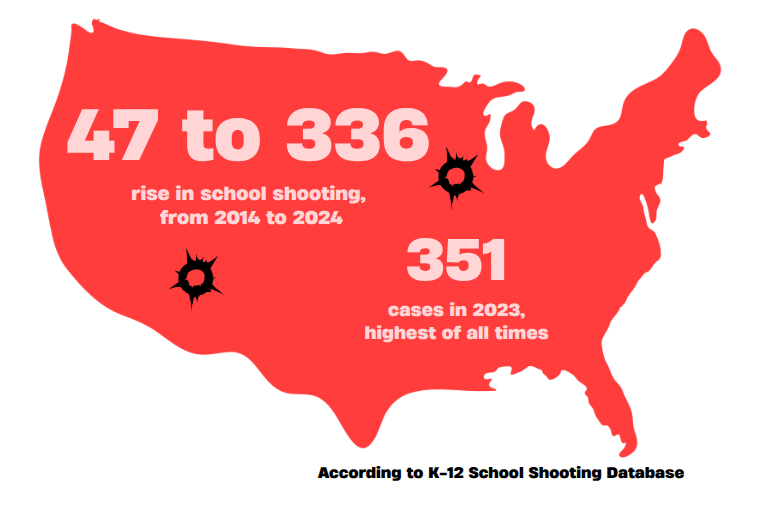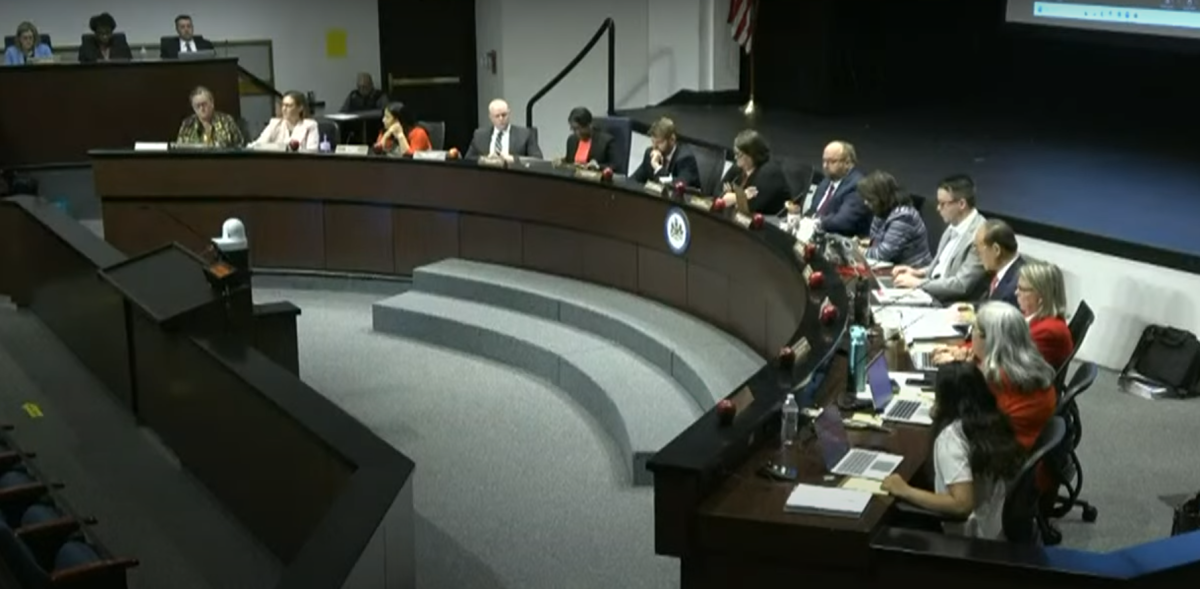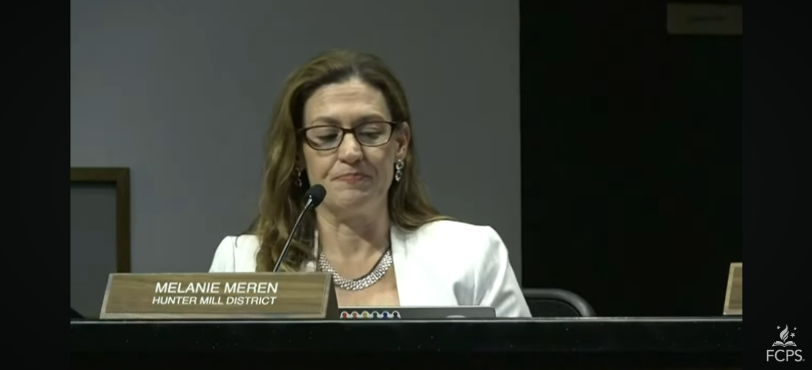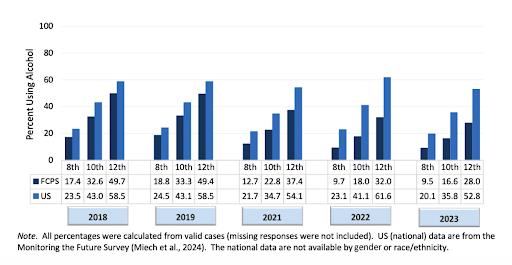
Sixty percent of 12th graders surveyed by Fairfax County in 2014 reported drinking alcohol at least once in their lifetimes. Ten years later, that number is reportedly down to 28%. Studies suggest that Generation Z is reworking the expectations on alcohol consumption, but concerns remain over their indulgence in other risky behaviors.
Gen Z, defined by Pew Research as those born between 1997-2012, seems to be consuming alcohol at a rate less than previous generations. The 2023 Fairfax County Youth Survey, published last month, reported a 2.6% decline in lifetime alcohol use among sophomores and a 4% decline among seniors since the last time the survey was conducted in 2021.
“I’m not naive to think that high school students are not drinking, especially outside of school, but I don’t think I’ve ever seen students drinking alcohol here,” Student Resource Officer Lane Leisey said. “It may happen, but I have not seen them.”
Both the Fairfax County survey and Leisey’s observations can be substantiated by recent research findings showing similar trends. In 2022, for example, the National Public Health Information Coalition cited a 2018 study showing that Gen Z was consuming alcohol 20% less frequently than millennials did at their age.
To English teacher Cynthia Yoon, Gen Z’s abstinence from alcohol doesn’t come as a shock. Leaving behind alcohol, she shares, was just one part of an overall trend in her generation’s attitude toward norms of the past.
“When I was in high school 10-12 years ago, kids my age had already begun to cut down on how much they drank recreationally,” Yoon said. “I’m Korean, and drinking is a huge part of our culture. It was something older people were doing all the time when I was younger and it was very normalized, but nowadays people really aren’t drinking that much anymore.”
Social media has also been cited as playing a role in Gen Z’s shift away from alcohol, according to AlcoholHelp. Buzz about healthier lifestyle trends, as well as increased attention to nutritious food and drink alternatives, have reportedly increased youth awareness about unhealthy behaviors such as drinking.
“There’s a lot more social media use now, and for better and worse, it has definitely played a big part in this generation’s mindset about things,” Yoon said. “In the last decade, kids have been consistently exposed to more and more of the dangers that alcohol abuse can have, and I think it’s making people more weary of the risks of not just drinking, but other unhealthy behaviors too.”
Indeed, the 2023 Fairfax County Youth Survey also showed a 13.1% drop in marijuana use and a 9.8% drop in tobacco use over the last 10 years.
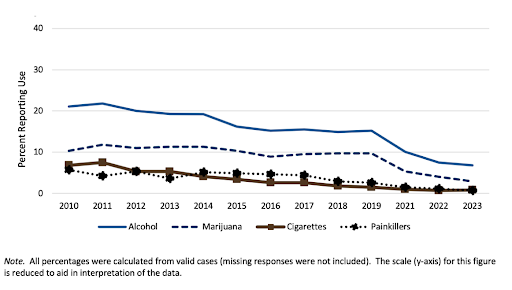
“Awareness and importance of a healthy lifestyle have definitely increased in Gen Z compared to past generations,” Future Health Leaders president junior Ria Kumar said. “Social media platforms have played a significant role in informing our generation about healthy practices in terms of diet, exercise, and mental health.”
Yoon, however, also points out how Gen Z may be trading off old, unhealthy behaviors for more modern afflictions, a claim backed by researchers. Though the most recent FCPS Youth Survey recorded a 1.7% drop in vaping use among respondents, the CDC found in 2022 that one in six high schoolers used a nicotine product at least once a day. Inhalant use also stayed nearly at constant levels according to the Youth Survey, a finding that goes against the noticeable declines in rates seen with other substance-related behaviors.
“I remember hearing about vapes back when I was in high school in 2014 and how they were starting to become a thing, but they weren’t common at the time,” Yoon said. “No one really cared to use them, and if they did, they were sort of shunned. Now people do it all the time, as if its nothing.”
While proponents often label vapes and inhalants as “healthier alternatives” to behaviors like smoking, Johns Hopkins Medicine shares that there have still been negative consequences associated with the behaviors, citing a 2020 CDC study that saw 2807 cases of e-cigarette or vaping use-associated lung injury, as well as 68 deaths.
“Nicotine is addictive,” Leisey said. “I think some people feel that they need to have it. [It’s] not a good reason, but it could be peer pressure, or just a bad habit that they’ve picked up.”
And while the 2023 Youth Survey showed a decline in the rates of alcohol being consumed by students, it did show an increase in the number of students who felt that there were adults in their neighborhood that they felt they could talk to about something important.
“I think the best thing would be to never try vaping or smoking,” Leisey said. “But if you are addicted, then there are resources available at school and outside of school you could seek help from.”


